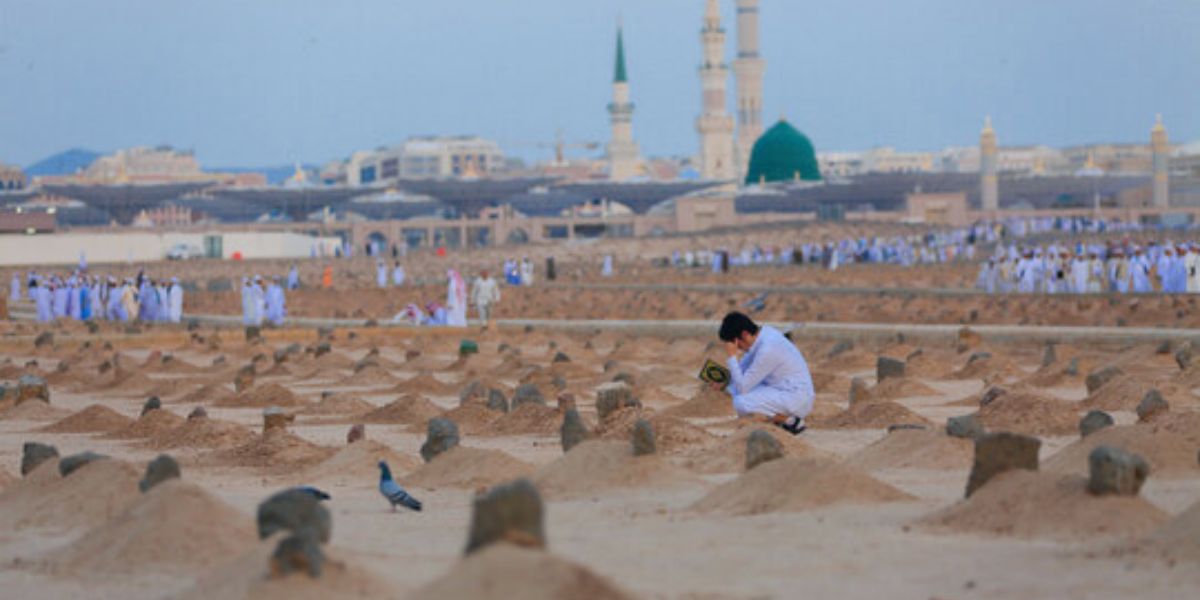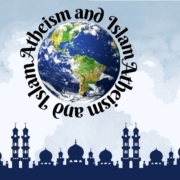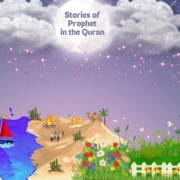As The Soul Departs: Exploring The Six Moments Of Death
Exploring the Six Moments of Death reveals the profound journey every soul must undergo as it departs from this world. The exact match keyword “Exploring the Six Moments of Death“ not only uncovers a spiritual reality but also invites us to understand the divine process described in Islamic teachings. Death is not a single event; it is a sequence of stages that begins the moment a person’s soul starts its departure and continues until it reaches its final destination in the Hereafter. Each moment carries its weight, its signs, and its message, reminding us of life’s temporary nature and the eternal reality that follows.
From the unseen arrival of angels to the final separation of soul and body, every phase is divinely orchestrated with precision and purpose. While modern science often focuses on the physical aspects of death, Islamic tradition offers a detailed insight into its spiritual dimensions, where the unseen becomes visible, and the soul stands between mercy and accountability. This article takes you through these six moments of death that define the human soul’s final journey, offering not only reflection but also preparation for what lies beyond the veil of mortality. Understanding them may change how we live before we die.
The first stage is called “Yaum al-Mawt” – The Day of Death
This is the day when a person’s life comes to an end. On this day, Allah commands the angels to descend to Earth and take the soul of the person so they can be prepared to meet their Lord. Unfortunately, no one knows when this day will come, and when it does, the person is often unaware that it is the day of their death.
However, the person begins to feel changes in their body. For example, a believer feels peace and comfort in their heart, while someone who has done evil feels pressure in their chest and heart. At this stage, the devils and jinn can see the descent of the angels, but humans cannot.
The Qur’an mentions this stage as follows:
“And fear the Day when you will be returned to Allah. Then every soul will be compensated for what it earned, and they will not be wronged.” (Surah Al-Baqarah: 281)
“اور اس دن سے ڈرو جس دن تم اللہ کی طرف لوٹائے جاؤ گے، پھر ہر جان کو اس کے کیے کا پورا بدلہ دیا جائے گا۔”(سورة البقرة: 281)
The second stage is the gradual departure of the soul
It begins from the soles of the feet. The soul slowly rises upward, passing through the legs, knees, stomach, navel, and chest until it reaches a point called “Taraqiy.”
At this point, the person feels fatigue and dizziness and can no longer stand. Their physical strength fades, yet they still do not realise their soul is leaving the body.
The third stage is called the “Taraqiy” phase
This is mentioned in the Qur’an as:
“No! When the soul has reached the collar bones, and it is said, ‘Who can cure him?’ and the dying one knows it is the time of departure, and one leg is joined with the other.” (Surah Al-Qiyamah: 26–29)
“(سورة القیامة: 26-29)ترقی حلق کے نیچے کے دو ہڈیوں کو کہا جاتا ہے جو کندھوں تک پھیلتی ہیں۔”
Taraqiy refers to the bones just below the throat that extend toward the shoulders.
“Wa qeela man raaq” means, “Who will take his soul?”
This is when people start calling doctors, ambulances, or reciting the Qur’an, but the person still holds on to hope.
“Wa zanna annahu al-firaaq” means the person senses that death is near but continues to struggle for survival.
“Wal-taffat al-saq bil-saaq” indicates that the process of the soul’s exit is nearly complete, and the lower body has become lifeless.
The fourth stage is the “Hulqoom” phase – the final and most difficult stage of death.
At this point, the veil is lifted from the person’s eyes, and they begin to see the angels surrounding them.
Now the person begins to witness the Hereafter.
“We have removed your covering from you, so your vision today is sharp.” (Surah Qaf: 22)
“(سورة ق: 22)قرآن میں اللہ تعالیٰ فرماتا ہے:”پھر کیوں نہیں جب روح حلق تک پہنچ جائے۔ اور تم اس وقت دیکھ رہے ہو، اور ہم تم سے زیادہ قریب ہیں، لیکن تم دیکھ نہیں سکتے۔”
Allah also says:
“Then why do you not (intervene) when the soul reaches the throat, while you are looking on. And we are nearer to him than you, but you do not see.” (Surah Al-Waqi’ah: 83–85)
“(سورة الواقعة: 83-85)”یہ وہ وقت ہے جب انسان اللہ کی رحمت یا غضب دیکھتا ہے۔ وہ اپنی زندگی کے اعمال کو اپنی نظروں کے سامنے گزرتا ہوا دیکھتا ہے۔
This is when the person sees either the mercy or the wrath of Allah. Their entire life flashes before their eyes, and Shaytan makes one last attempt to mislead them.
The Qur’an says:
“And say: ‘My Lord! I seek refuge in you from the whispers of the devils, and I seek refuge in you, my Lord, lest they come near me.’” (Surah Al-Mu’minun: 97–98)
“اور کہو، اے میرے رب، میں شیطان کے وسوسوں سے تیری پناہ مانگتا ہوں، اور اس سے بھی کہ وہ میرے پاس آئیں۔”(سورة المؤمنون: 97-98)
The fifth stage is the arrival of the Angel of Death (Malak al-Mawt)
This is when it becomes clear whether the person belongs to those receiving mercy or those facing punishment.
Allah says:
“But if you could see when the angels take the souls of those who disbelieved – they are striking their faces and their backs.” (Surah Muhammad: 27)
“اور جن کی روحیں فرشتے سختی سے نکالتے ہیں، ان کے چہروں اور پشتوں پر مارتے ہیں۔”(سورة محمد: 27)
If the person is a believer, the soul is taken gently, like water dripping from a water-skin.
Allah says:
“O tranquil soul, return to your Lord, well-pleased and pleasing. So enter among my servants, and enter My Paradise.” (Surah Al-Fajr: 27–30)
“اے اطمینان والی روح، اپنے رب کی طرف لوٹ، راضی اور مرضی، اور میرے بندوں میں شامل ہو جا، اور میری جنت میں داخل ہو جا۔”(سورة الفجر: 27-30)
The sixth and final stage is when the soul fully departs from the body.
If the person was sinful, they would cry:
“My Lord! Send me back so I may do good in what I left behind.”
But Allah responds:
“No! It is only a word he is saying; and behind them is a barrier until the Day they are resurrected.” (Surah Al-Mu’minun: 99–100)
“ہرگز نہیں، یہ صرف ایک بات ہے جو وہ کہہ رہا ہے۔ اور ان کے پیچھے ایک پردہ ہے، قیامت کے دن تک۔”(سورة المؤمنون: 99-100)
“And the agony of death comes in truth; this is what you were trying to escape.” (Surah Qaf: 19)
“اور موت کی سختی حق کے ساتھ آئے گی، یہی وہ ہے جس سے تم بھاگتے تھے۔”(سورة ق: 19)
At this point, good news of Paradise is given to the believer, while the wrongdoer is warned of punishment.
A scholar was once asked, “Why are people afraid of death?”
He replied:
“Because you have built this world and destroyed your Hereafter.”
O Allah, grant us an end upon the religion of Islam… Ameen.
Conclusion
In conclusion, Exploring the Six Moments of Death provides a profound understanding of the soul’s departure and the divine wisdom behind each stage. These six moments are not just steps toward the end of life but are deeply spiritual transitions that reveal the reality of the Hereafter. By recognising the signs, emotions, and experiences associated with each phase, we gain clarity about what awaits us all.
The purpose of exploring six moments of death is not to induce fear, but to awaken awareness, humility, and preparation. By understanding what happens when the soul begins its journey beyond this world, we become more mindful of our actions in this one. Life becomes more purposeful, and the afterlife more real. This article will walk you through each of the six moments, shedding light on the unseen transitions that every soul will one day experience.
In doing so, it invites us all to live with deeper intention and spiritual readiness. For those who reflect, these stages are not only a glimpse into the unseen but also a call to prepare for a meaningful end. As we continue exploring the Six Moments of Death, may it inspire us to live with intention, seek forgiveness, and strive for a return to our Creator with a heart full of faith.












Leave a Reply
Want to join the discussion?Feel free to contribute!